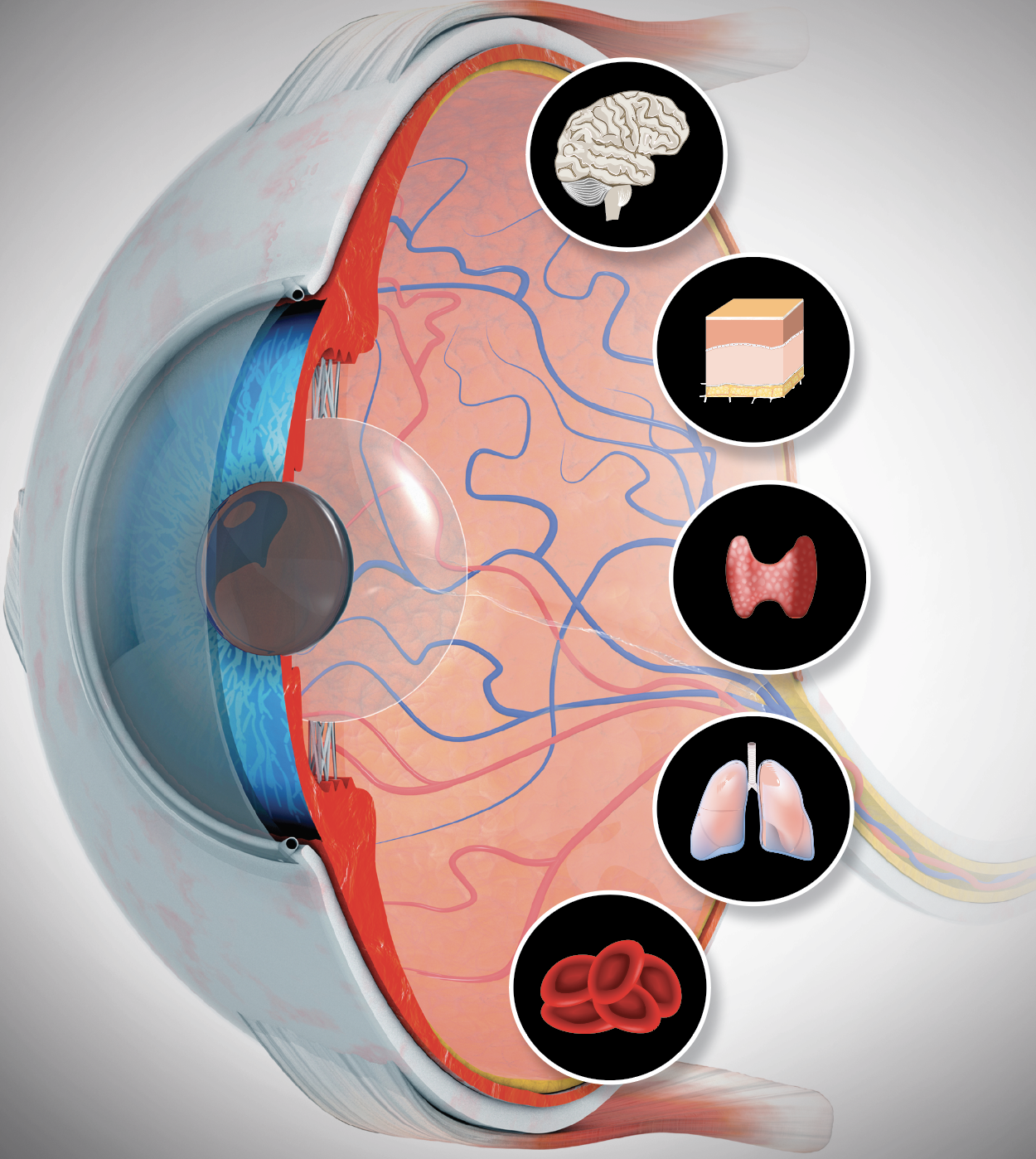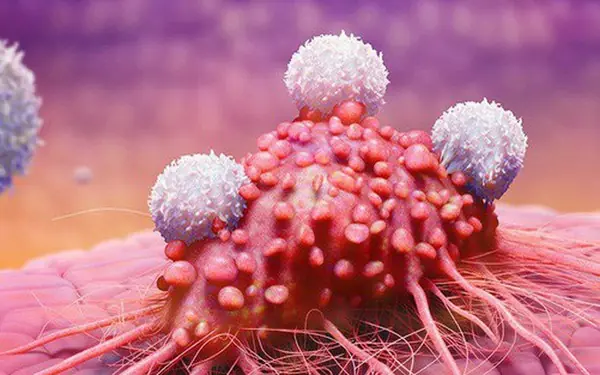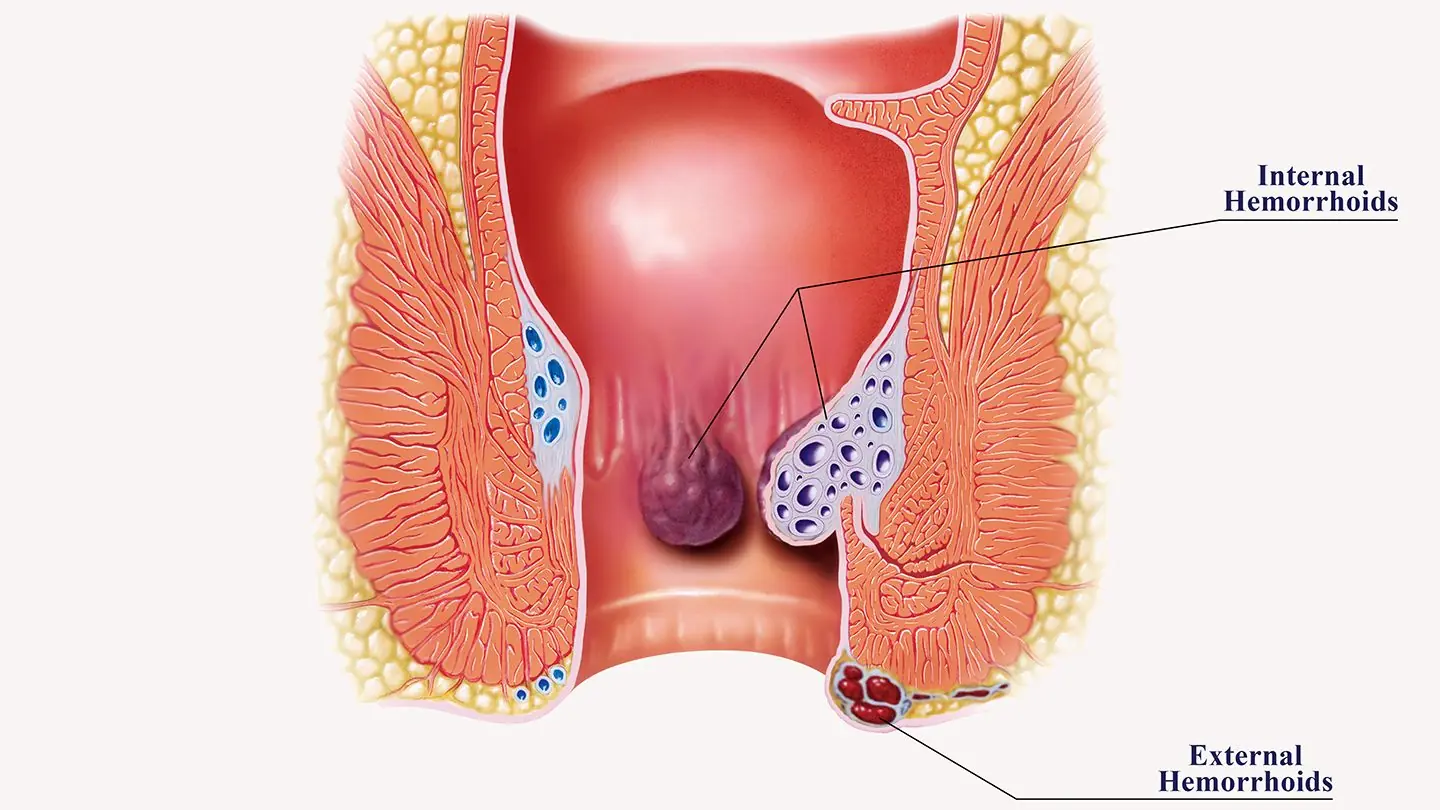
Your Eyes: Windows to Your Health – Uncovering Diabetes and Cancer Through Vision
Your Eyes: Windows to Your Health – Uncovering Diabetes and Cancer Through Vision

Did you know your eyes can reveal far more about your health than just vision problems? Beyond detecting eye-specific conditions, a comprehensive eye exam can actually uncover signs of very serious systemic diseases, including diabetes and even certain cancers. Understanding how these conditions manifest in your eyes can aid in early detection and timely intervention, giving you a critical advantage in managing your health.
What Your Eyes Reveal About Your Health
They say the eyes are the windows to the soul, but it turns out they're also windows to your overall health. While you might not be able to spot these health indicators yourself, your eye doctor can. In addition to assessing eye-related conditions, thorough eye exams have the potential to reveal signs of various illnesses, including brain tumors, other types of cancer, and diabetes. It's crucial to have your eyes checked at least every two years, or preferably annually, to ensure no important signs or symptoms are missed.
Eye Exams: A Key to Diabetes Detection
One significant indicator of diabetes visible in the eyes is diabetic retinopathy. This diabetes-related complication affects the small blood vessels of the retina, potentially leading to vision problems and, if left untreated, blindness. It can develop in individuals with either Type 1 or Type 2 diabetes, with the likelihood increasing over time, especially with poorly controlled blood sugar levels.
Symptoms and Indications
In its early stages, diabetic retinopathy may not show any noticeable symptoms. However, as the condition progresses, certain signs will start to emerge:
-
Floaters or dark strings in your vision.
-
Blurred or fluctuating vision.
-
Dark or empty areas in your visual field.
-
Vision loss.
Examination and Diagnosis
Your eye doctor can detect diabetic retinopathy through regular eye exams, which typically include pupil dilation. If you have diabetes, your optometrist will specifically look for signs of this condition at each check-up. Through a comprehensive eye exam, doctors can assess retinal health, identify early signs of diabetic retinopathy, and intervene promptly to prevent permanent vision loss.

Eye Health and Cancer Detection
Your eye doctor can identify signs of cancers related to the eyes during a regular exam, such as ocular melanoma or other eye-related cancers. What's more, they may also notice signs of a brain tumor even before your regular doctor does. Brain tumors can cause increased pressure within the brain, leading to changes or damage to the optic nerve. Optometrists are trained to identify these subtle changes in the eyes, which can signal the presence of a brain tumor. They can also detect aneurysms and other conditions that similarly affect the eyes.
Cancer Eye Symptoms
A number of changes in your eyes can signify cancer:
-
The appearance of dark spots, bulges, or abnormal blood vessels can all be symptoms of ocular melanoma.
-
The presence of abnormal growths or lesions can signal intraocular cancer.
If your optometrist observes any of these signs and suspects cancer, they will likely refer you for further investigation.
Identifying Other Systemic Diseases
Beyond diabetes and cancer, optometrists can also detect signs of various other health conditions. These include high blood pressure, high cholesterol, multiple sclerosis, lupus, and rheumatoid arthritis, among others. Many of these conditions are detectable via irregularities in retinal blood vessels. You likely won't be able to see these changes on your own, but your eye doctor can during a routine eye exam. These exams are incredibly important, not only for preserving vision but also for uncovering potential systemic health concerns.
The Critical Role of Early Detection
Early detection of ocular melanoma and other intraocular cancers is paramount for initiating appropriate treatment and maximizing the chances of a positive outcome. By recognizing the signs of these diseases in the eyes, doctors can promptly refer patients for further evaluation and targeted interventions. Again, this underscores why visiting your eye doctor semi-annually or annually is a vital step toward safeguarding your overall health.
The Bottom Line
Your eyes are truly windows to your health, offering valuable clues about systemic diseases such as diabetes, cancer, and even brain tumors. Through regular eye exams and your own diligence in observing any changes in vision, individuals and healthcare providers can work collaboratively to detect these conditions early. This early detection can potentially prevent the development of severe health complications and preserve your vision. The clear lesson here? Don't skip your routine eye exams – they could not only save your eyes but potentially save your life.
When was your last comprehensive eye exam?
News in the same category


The Truth Behind ‘Durex’: What Its Name Actually Stands For Has Stunned Many

5 Early Warning Signs of Cancer in Children: Parents Must Know to Save Their Child

If Your Body Has a Bad Odor in These 3 Areas, It Could Mean Poor Liver Detox and Declining Function – Get Checked Before It’s Too Late!

Warning: If You Notice This Symptom in Your Body, Go to the Hospital Immediately – It Could Be Late-Stage Nasopharyngeal Cancer

Astonishing Cancer-Fighting Power of One Juice — Even Doctors Are Surprised

5 Types of Cancer with Over 90% Cure Rate: Early Signs Everyone Should Pay Attention To

Doctor's Advice: Whether You're Rich or Poor, Never Eat These 3 Foods for Breakfast – They Can Lead to Aggressive Cancer

Scientists Use CRISPR to Eliminate HIV from Human Immune Cells

Hemorrhoids: Fast, Effective, Science-Backed Ways to Find Relief

Ovarian Cancer: 8 Early Signs You Need to Know

It’s Not Just Tooth Decay: 2 Common Signs in Your Mouth That Are SOS Signals From Your Body — Don’t Ignore Them

3 Early Signs of Lung Cancer You Shouldn’t Ignore — It Could Become Life-Threatening

Is Cancer Hereditary? Useful Tips to Prevent Cancer from Developing

Health Experts Suggest 7 Ways to Detox Your Liver and Cleanse Your Body Daily

The Back of Your Hand Reveals Longevity Secrets: 4 Signs Everyone Should Check

13cm of Intestine Fell Out After 2 Hours on the Phone in the Toilet: 5 Dangers of Using Your Phone in the Bathroom

Don't Drink Water Right After Waking Up — Doctors Recommend Doing These 5 Things First

A 40-Year-Old Man Suffers a Stroke After Dinner: Doctor Points Out 3 Critical Mistakes
News Post

Surprising Triggers: What May Be Causing Your Hives (Urticaria)

The Truth Behind ‘Durex’: What Its Name Actually Stands For Has Stunned Many

Psychology: People Who Talk To Their Pets Like They Are Humans Display Certain Emotional Traits

It’s Official! Mexico City Has Banned Bullfighting, Ending A 500-Year-Old Tradition

Disconnect WiFi at Night Sleep With the Phone on Airplane Mode in Another Room

The Hidden Dangers of Cooking with Aluminum Foil: Health Implications and Safer Alternatives

Japan Has Created a New Plastic That Dissolves in the Sea Within Hours and Enhances Soil Health

Scientists Reveal Simple Blood Test Can Detect Cancer Years Before Symptoms Appear

Bill Gates Says Only 3 Jobs Are Safe From AI — Are You In One Of Them?

5 Early Warning Signs of Cancer in Children: Parents Must Know to Save Their Child

People Unvaccinated Against COVID Are 48 Percent More Likely To Get Into Traffic Accidents

If Your Body Has a Bad Odor in These 3 Areas, It Could Mean Poor Liver Detox and Declining Function – Get Checked Before It’s Too Late!

Warning: If You Notice This Symptom in Your Body, Go to the Hospital Immediately – It Could Be Late-Stage Nasopharyngeal Cancer

A ‘Zombie’ NASA Satellite Woke Up After 60 Years—And It Sent Out A Powerful Radio Pulse

Scientists Claim That If Humans Go Extinct, Octopuses Have The Best Chance Of Building The Next Civilization

23-Year-Old Ukranian Discovers Way To Make Paper From Fallen Leaves Without Cutting Down Trees

Rare ‘Doomsday’ Oarfish Washes Ashore In Tasmania, Igniting Superstitions Of Impending Disaster

Sore Throat Relief: How Ginger Can Soothe Your Throat Naturally
